Today’s Class Will Meet on Zoom
What the New Arms Race in Higher Education Means
Believe me, before I entered the doctor of ministry program at Emory’s Candler School of Theology I did my research. It seems like every pastor I know has, is getting, or wants a D.Min. With such high demand, there is no wonder why so many D.Min. mills have cropped up. Emory, however, is the only program in the United States where the majority of classes are taught by tenured professors (most schools use adjuncts). Candler also includes a final project that doesn’t desire a twenty-nine word title comparing patristic practices to something I will never use again. More so, Candler offers continuous classes (most take long breaks of independent work) and a hybrid of online and on-campus classes. Plus the nationally ranked Emory University is one of the few colleges in the highest Carnegie Classifications that has a school of theology. Getting a D.Min. at Emory isn’t easy, but choosing Emory was.
Of the 153 Association of Theological Schools that offer a doctor of ministry degree, 113 have an online component. Online learning is one of the driving forces in how higher education is changing. Hundreds of universities are now offering massive open online courses (MOOCs), early college, executive programs, and satellite campuses. Higher Education is changing so rapidly that the same university presidents who a decade ago were trying to be the next Harvard are now competing to be the next Arizona State or Purdue. Even Harvard may want to be the next Arizona State.
Universities are also becoming more consumer oriented. On a hot Atlanta day, it’s hard to beat Emory’s Aquatics Center where you’ll find hundreds of students (except for doctoral students, of course) swimming, tanning, playing water volleyball, and sipping on sweet tea (Emory’s doctoral students need something stronger than sweet tea). However, even Emory pales in comparison to other campuses who have bet the farm not on their academic credentials, or their online capacities, but instead their amenities.
- Michigan Tech has its own twenty-two trail snow ski and tubing park.
- Texas Tech has its own water park with a 645ft. long lazy river.
- Boston University’s Student Village is a high-end high-rise apartment complex with views of the city with the amenities of luxury living.
Many believe that the way higher education is changing is quite disruptive. Thus, my research details the disruption of higher education. For the sake of time and space, consider these books.
- Higher Education Under Fire
- Crisis in the Academy
- Universities in Transition
- College (Un)Bound
- The Still Divided Academy
The Disruption of the Church
What the Decline in the American Church Means
When I’m not a doctoral student at Emory, I serve as the campus pastor at the University of North Carolina at Charlotte, a thirty-thousand student urban research university, that is building its own state of the art recreation complex with tons of needless amenities. I am responsible for the Episcopal, Lutheran(ELCA), Presbyterian(USA), and United Methodist campus ministry Niner United. We offer a dynamic ministry reaching hundreds of students with worship, formation, service, and good ole’ koinonia. However, even the best campus ministries struggle1. We rely on the church for financial and other types of support, and I am not sure if you’ve heard, but the church in North America, like higher education, is also in disruption.
My research details the disruption of the church as well. For the sake of time and space, simply consider these recent studies, for they too are quite revealing:
- Six Reasons Young Christians Leave Church (the Barna Group)
- Are American Youth Alienated from Organized Religion? (the National Study of Youth and Religion)
- Church Leaders and Declining Religious Service Attendance (Gallup)
- Young Adults are Increasingly Scarce in Churches (the Lewis Center for Church Leadership)
Sustaining Campus Ministry
Amid Both Church and College Disruption
The beauty of campus ministry is that it has a foot in both the church and the academy. Having a foot in both institutions is also the source of anxiety for campus ministry. So what is the future of campus ministry amid both church and college disruption? Through in-depth interviews with sixteen of the nation’s most prominent campus ministries, my study explores the significance of campus ministry, a resource that is caught in the middle of the disruption of the church and the changing nature of higher education. More so, this study attempts to understand how national initiatives are changing the face of collegiate ministry and argues that a unified approach to campus ministry leadership is an ecclesiological necessity. The findings suggest that a thinktank and support system for campus ministries across the nation is required. The campus ministries I studied were already accoladed as some of the best in the country, being among the very few participants in the Lilly Endowment’s Campus Ministry Theological Exploration of Vocation (CMTEV) initiative.
A Study of Sixteen of the Nation’s Best Campus Ministries
 |
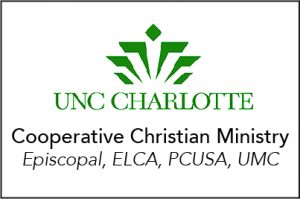 |
 |
 |
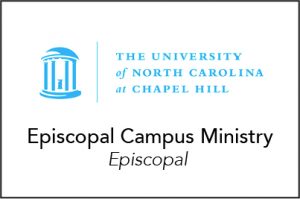 |
 |
 |
 |
 |
 |
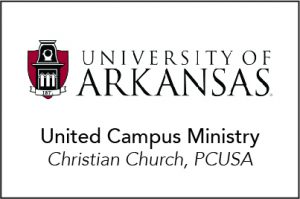 |
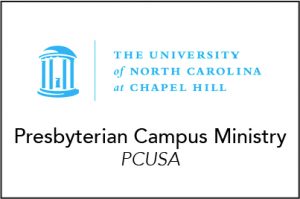 |
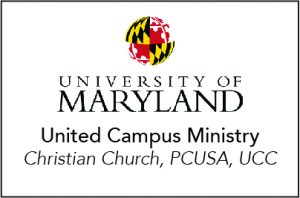 |
 |
 |
 |
Findings:
Campus Ministry Needs Serious Attention
The study reached six major findings:
Campus Ministers Lack Professional Development and Support
One respondent stated “the field is pretty disconnected” in assisting campus ministries. Another stated, “I figured it out on my own.” Another campus minister, in a contrarian manner, stated that “training is a pretentious word because nobody knows how to do campus ministry.” In short, the research indicated campus ministers are not properly supported.
Campus Ministries Face Contextual Challenges
Once you’ve seen one campus ministry, you’ve seen one campus ministry. Campus ministries have inconsistent access to both university and denominational resources and come in many different styles and stabilities. Such variation in campus ministry makes sustaining campus ministry particularly difficult.
Campus Ministries Can’t Always be Prophetic
Unlike past times, the risk of being prophetic in campus ministry is likened to ecclesial insubordination. Campus ministers are also finding it more challenging to be prophetic on campus. While campus ministry certainly has a tradition of community organizing and supporting the campus protest culture, many are now landing on the side of caution, deciding to provide spaces that are emotionally nurturing rather than prophetically challenging.
Campus Ministries Face Various Forms of Competition
Examples of financial competitors include parachurch ministries, new church starts, and funding parish-based college programs. Campus ministries also have non-financial competitors on college campuses, as well. Most college campuses have an abundance of Christian campus ministries, many with leaders who have no theological training or experience.
Campus Ministries Face Ecclesial Challenges
Based on the national college retention average, a campus ministry must have a yearly rate of growth of at least forty percent to maintain the status quo of a steady participant base. One respondent admitted that when church leaders look at campus ministry, “they don’t see us as church.” Thus, campus ministers also experience levels of isolation and disdain from their clergy colleagues.
The Future of Campus Ministry is Fundraising
The most common work for the future in campus ministry is related to fundraising, an activity that demands significant time and energy from campus ministers. However, fundraising comes at a considerable cost. One respondent clearly stated, “I can’t not pay attention to it.” In fact, the fundraising demand aggravated most of the sixteen campus ministers. One explained that “it is interesting to me that the…denominational level is decreased its funding. [yet] still having an expectation of us to produce.” One would think that the future planning of campus ministry would revolve around expanding on the innovative success it has in student development, but instead campus ministers are learning how to “make case statements and donor databases.”
Two Unexpected Findings
The study reached two additional non-findings: Most surprisingly is that both the review of the literature and the results of this ethnography bare little mention of the changing nature of higher education. Not one of the sixteen campus ministers made any reference to the changing nature of universities, the institutional transformations in higher education, or the “crisis” in the higher education sector discussed so widely in industry publications and gatherings. I hypothesize three possible reasons:
- Perhaps most likely, the decline of the church and incredible stress related around the lack of funding simply preoccupies campus ministers in ways that prevent them from adding the concern of the disruptive nature of higher education to their already overloaded basket of worries.
- A second possibility is that campus ministers feel more connected to the church than they do to the university and such a connection causes them to worry less about the university context and its changing nature. Campus ministries, in particular that have their own buildings can exist near universities without relating the universities in meaningful ways.
- A third possibility might be that many of these campus ministers are merely unaware of the disruption in higher education. The lack of professional development, for instance, makes this possibility quite conceivable.
Secondly, campus ministers also often feel unheard, isolated, and typically on the edge of trying to sustain each day. This is clearly evident in this project’s methodology as focus groups and interviews lasted upwards to ninety minutes each and campus ministers wrote in their surveys notes of appreciation like “this was one of the most helpful ministry reviews I have ever participated in.”
The Solution:
The Establishment of a National Campus Ministry Center
This study suggests that a national center for the advancement of collegiate ministry would prove essential in assisting campus ministries to flourish, despite the problems they face. Campus ministers who participated in the focus group expressed gratitude for the collective conversation about their work, and also a desire to continue this type of gathering and resourcing together. Additionally, the insight that these campus ministers had nothing to say about the changing nature of higher education are perhaps the strongest indication that a national center could respond to specific campus ministry needs, both known and unknown. The work of a national center for campus ministry has to emerge from a theological understanding of the nature of campus ministry as a vocation and a ministry of the church. Campus ministry is important, especially when its leaders thrive. Thus, a national center for campus ministry would cultivate thriving campus ministers. To facilitate such thriving, a national center can focus on these four specializations:
Contribute to the Wellness of Campus Ministers
Campus ministry needs, now more than ever, to connect people to their most profound needs to belong, which can often be an incredibly challenging task considering the campus minister is also in search of belonging. Just as campus ministers play a critical role in the spiritual development of collegians, a national campus ministry center can spiritually help the campus ministers.
Fund, Consult, and Advise Campus Ministries
There is an essential place for consulting and advising of campus ministers, boards, student leaders, university faculty and staff, and denominational leaders. A national center for campus ministry could, for example, follow the model of the Indiana Center for Congregations that provides no-cost consulting and low-cost educational events to parishes.
Professionally Resource Campus Ministries
Campus ministers do not have a collective resource for education and assistance. In essence, there is not one place (a single distinctive place that is widely known and accessible) that adequately provides professional resources to campus ministers. However, a national campus ministry center can offer proven theological resources, combined with the work of leading experts in higher education leadership.
Establish Means for Campus Ministers to Share Best Practices
Varied sets of best practices must be shared through cohorts, gatherings, conferences, and workshops. A national center can give campus ministers a space to share and learn one another’s best practices for campus ministry.
Invest in Campus Ministry
The Abundant Community on Campus Must be Sustained
In an exhaustive review of the literature, I have identified that campus ministry is key to a student’s total development. I have also noted that because of the disruption of the church, and most interestingly the changing nature of higher education, campus ministries continue to struggle. I am arguing that should mainline denominations fail or continue to be disrupted, campus ministry is too important to lose, and groups like the Lilly Endowment could potentially help sustain these ministries. I have discovered through a focus group, surveys, and focused interviews of some of the nation’s most prominent campus ministers that even they are not prepared to face the challenges ahead, especially concerning the issues of how universities are rapidly changing.
This study has shown that campus ministers have few resources for professional development, find themselves isolated, face challenges of complexity, social justice, competition, and challenges related to their ecclesial nature. I have also noted that campus ministers have difficulty preparing for the future as they are burdened by the disruption of the church and demands of fundraising. I was also surprised to note that campus ministers did not address the complex and concerning issues of the changing nature of higher education. Moreover, I was also surprised at the level of isolation that campus ministers experience. As a result, I suggested that a national center for campus ministry be established and dedicated as a thinktank and resource to address these significant concerns. Should mainline denominations fail, campus ministry is too important to lose, and groups like the Lilly Endowment could potentially help sustain these ministries.
(Tweet 1) H. Holden Thorp and Buck Goldstein, Our Higher Calling: Rebuilding the Partnership between America and Its Colleges and Universities(Chapel Hill: The University of North Carolina Press, 2018). 35
(Tweet 2) “4 Keys To Reversing Church Decline.” CareyNieuwhof.com. November 29, 2018. Accessed April 5, 2019. https://careynieuwhof.com/4-keys-to-reversing-a-church-decline/.
(1) John Arnold Schmalzbauer and Kathleen A. Mahoney, The Resilience of Religion in American Higher Education(Waco, Texas: Baylor University Press, 2018). 88.



